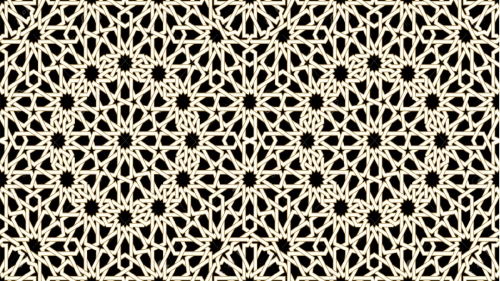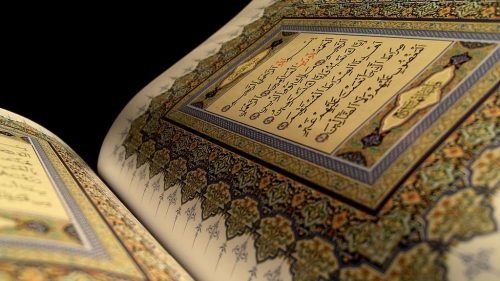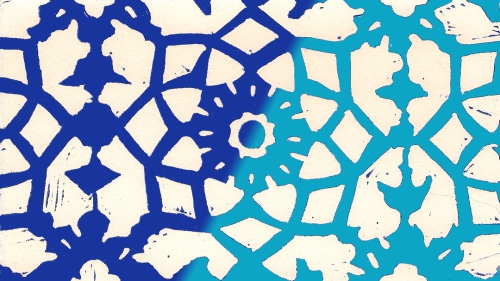The Quran and the Power of دعاء (Dua’a)

It is a universal truth that intention is the driving force behind every human action. The more powerful one’s intention, the more passionate one will be about one’s action. But before carrying out one’s program of action, if one first finds out what the Quran’s command (i.e., Divine law) says in this matter and then commits his intention accordingly, then one must become intensely passionate for that action.
The Quran terms this intensely passionate desire (coming from deep inside the heart) دعاء (Dua’a), which leads to a positive transformative change in one’s “self.” In other words, the intense desire to harmonize one’s intention and action with divine laws is called دعاء (Dua’a). The valuable outcome of this intention and action means the acceptance of دعاء (Dua’a) by Allah. This is the way to make دعاء (Dua’a) to Allah.
Allah is very close to Human beings
وَنَحْنُ أَقْرَبُ إِلَيْهِ مِنْ حَبْلِ الْوَرِيدِ
(50:16) – We are closer to him than his neck-vein. [Asad]
وَإِذَا سَأَلَكَ عِبَادِي عَنِّي فَإِنِّي قَرِيبٌ ۖ أُجِيبُ دَعْوَةَ الدَّاعِ إِذَا دَعَانِ ۖ فَلْيَسْتَجِيبُوا لِي وَلْيُؤْمِنُوا بِي لَعَلَّهُمْ يَرْشُدُونَ
(2:186) – AND IF My servants ask thee about Me - behold, I am near; I respond to the call of him who calls, whenever he calls unto Me: let them, then, respond unto Me, and believe in Me, so that they might follow the right way. [Asad]
وَقَالَ رَبُّكُمُ ادْعُونِي أَسْتَجِبْ لَكُمْ
(40:60) – But your Sustainer says: Call unto Me, [and] I shall respond to you! [Asad]
Allah replies to an aching heart and eradicates misfortune
بَلْ إِيَّاهُ تَدْعُونَ فَيَكْشِفُ مَا تَدْعُونَ إِلَيْهِ
(6:41) – Nay, but it is Him alone that you will invoke - whereupon He may, if He so wills, remove that [ill] which caused you to call unto Him. [Asad]
قُلْ مَن يُنَجِّيكُم مِّن ظُلُمَاتِ الْبَرِّ وَالْبَحْرِ تَدْعُونَهُ تَضَرُّعًا وَخُفْيَةً
(6:63) – Say: "Who is it that saves you from the dark dangers of land and sea [when] you call unto Him humbly, and in the secrecy of your hearts. [Asad]
أَمَّن يُجِيبُ الْمُضْطَرَّ إِذَا دَعَاهُ وَيَكْشِفُ السُّوءَ
(27:62) – Nay - who is it that responds to the distressed when he calls out to Him, and who removes the ill [that caused the distress]. [Asad]
Calling unto Allah for help
When humans call on Allah, they must do so with full sincerity of their hearts while obeying His commands.
قُلْ أَمَرَ رَبِّي بِالْقِسْطِ ۖ وَأَقِيمُوا وُجُوهَكُمْ عِندَ كُلِّ مَسْجِدٍ وَادْعُوهُ مُخْلِصِينَ لَهُ الدِّينَ
(7:29) – Say: "My Sustainer has [but] enjoined the doing of what is right, and [He desires you to] put your whole being into every act of worship, and to call unto Him, sincere in your faith in Him alone. [Asad]
هُوَ الَّذِي يُسَيِّرُكُمْ فِي الْبَرِّ وَالْبَحْرِ ۖ حَتَّىٰ إِذَا كُنتُمْ فِي الْفُلْكِ وَجَرَيْنَ بِهِم بِرِيحٍ طَيِّبَةٍ وَفَرِحُوا بِهَا جَاءَتْهَا رِيحٌ عَاصِفٌ وَجَاءَهُمُ الْمَوْجُ مِن كُلِّ مَكَانٍ وَظَنُّوا أَنَّهُمْ أُحِيطَ بِهِمْ ۙ دَعَوُا اللَّـهَ مُخْلِصِينَ لَهُ الدِّينَ لَئِنْ أَنجَيْتَنَا مِنْ هَـٰذِهِ لَنَكُونَنَّ مِنَ الشَّاكِرِينَ
(10:22) – He it is who enables you to travel on land and sea. And [behold what happens] when you go to sea in ships: [they go to sea in ships,] and they sail on in them in a favorable wind, and they rejoice thereat until there comes upon them a tempest, and waves surge towards them from all sides, so that they believe themselves to be encompassed [by death; and then] they call unto God, [at that moment] sincere in their faith in Him alone, “If Thou wilt but save us from this, we shall most certainly be among the grateful!” [Asad]
فَإِذَا رَكِبُوا فِي الْفُلْكِ دَعَوُا اللَّـهَ مُخْلِصِينَ لَهُ الدِّينَ
(29:65) – And so, when they embark on a ship [and find themselves in danger], they call unto God, [at that moment] sincere in their faith in Him alone. [Asad]
فَادْعُوا اللَّـهَ مُخْلِصِينَ لَهُ الدِّينَ
(40:14) – Invoke, then, God, sincere in your faith in Him alone. [Asad]
هُوَ الْحَيُّ لَا إِلَـٰهَ إِلَّا هُوَ فَادْعُوهُ مُخْلِصِينَ لَهُ الدِّينَ
(40:65) – He is the Ever-Living; there is no deity save Him: call, then, unto Him [alone], sincere in your faith in Him. [Asad]
ادْعُوا رَبَّكُمْ تَضَرُّعًا وَخُفْيَةً ۚ إِنَّهُ لَا يُحِبُّ الْمُعْتَدِينَ
(7:55) – Call unto your Sustainer humbly, and in the secrecy of your hearts. Verily, He loves not those who transgress the bounds of what is right. [Asad]
Do not call on anyone besides Allah
وَلَا تَدْعُ مَعَ اللَّـهِ إِلَـٰهًا آخَرَ
(28:88) – And call not, besides Allah, on another god. [Yusuf Ali]
فَلَا تَدْعُوا مَعَ اللَّـهِ أَحَدًا
(72:18) – So invoke not any one along with Allah; [Yusuf Ali]
وَلَا تَدْعُ مِن دُونِ اللَّـهِ مَا لَا يَنفَعُكَ وَلَا يَضُرُّكَ ۖ فَإِن فَعَلْتَ فَإِنَّكَ إِذًا مِّنَ الظَّالِمِينَ
(10:106) – Nor call on any, other than Allah; - Such will neither profit thee nor hurt thee: if thou dost, behold! thou shalt certainly be of those who do wrong. [Yusuf Ali]
قُلِ ادْعُوا الَّذِينَ زَعَمْتُم مِّن دُونِهِ فَلَا يَمْلِكُونَ كَشْفَ الضُّرِّ عَنكُمْ وَلَا تَحْوِيلً
(17:56) – SAY: "Call upon those [beings] whom you imagine [to be endowed with divine powers] beside Him and [you will find that] they have it not in their power to remove any affliction from you, or to shift it [elsewhere]. " [Asad]
وَيَوْمَ يَقُولُ نَادُوا شُرَكَائِيَ الَّذِينَ زَعَمْتُمْ فَدَعَوْهُمْ فَلَمْ يَسْتَجِيبُوا لَهُمْ وَجَعَلْنَا بَيْنَهُم مَّوْبِقً
(18:52) – One Day He will say, "Call on those whom ye thought to be My partners," and they will call on them, but they will not listen to them, and We shall make for them a place of common perdition. [Yusuf Ali]
وَقِيلَ ادْعُوا شُرَكَاءَكُمْ فَدَعَوْهُمْ فَلَمْ يَسْتَجِيبُوا لَهُمْ وَرَأَوُا الْعَذَابَ ۚ لَوْ أَنَّهُمْ كَانُوا يَهْتَدُونَ
(28:64) – It will be said (to them): "Call upon your 'partners' (for help)": they will call upon them, but they will not listen to them, and they will see the Penalty (before them); (how they will wish) 'if only they had been open to guidance!' [Yusuf Ali]
يَدْعُو مِن دُونِ اللَّـهِ مَا لَا يَضُرُّهُ وَمَا لَا يَنفَعُهُ ۚ ذَٰلِكَ هُوَ الضَّلَالُ الْبَعِيدُ ﴿﴾ يَدْعُو لَمَن ضَرُّهُ أَقْرَبُ مِن نَّفْعِهِ ۚ لَبِئْسَ الْمَوْلَىٰ وَلَبِئْسَ الْعَشِيرُ
(22:12-13) – [By behaving thus,] he invokes, instead of God, something that can neither harm nor benefits him: [and] this is indeed the utmost one can go astray. [And sometimes] he invokes [another human being] one that is far more likely to cause harm than benefit: vile, indeed, is such a patron and vile the follower! [Asad]
Humans pray to God when misfortune hits but forget Him afterwards
وَإِذَا مَسَّ الْإِنسَانَ الضُّرُّ دَعَانَا لِجَنبِهِ أَوْ قَاعِدًا أَوْ قَائِمًا فَلَمَّا كَشَفْنَا عَنْهُ ضُرَّهُ مَرَّ كَأَن لَّمْ يَدْعُنَا إِلَىٰ ضُرٍّ مَّسَّهُ ۚ كَذَٰلِكَ زُيِّنَ لِلْمُسْرِفِينَ مَا كَانُوا يَعْمَلُونَ
(10:12) – For [thus it is:] when affliction befalls man, he cries out unto Us, whether he be lying on his side or sitting or standing; but as soon as We have freed him of his affliction, he goes on as though he had never invoked Us to save him from the affliction that befell him! Thus do their own doings seem goodly unto those who waste their own selves.
وَإِذَا مَسَّ النَّاسَ ضُرٌّ دَعَوْا رَبَّهُم مُّنِيبِينَ إِلَيْهِ ثُمَّ إِذَا أَذَاقَهُم مِّنْهُ رَحْمَةً إِذَا فَرِيقٌ مِّنْهُم بِرَبِّهِمْ يُشْرِكُونَ
(30:33) – NOW [thus it is:] when affliction befalls men, they cry out unto their Sustainer, turning unto Him [for help]; but as soon as He lets them taste of His grace, lo! some of them [begin to] ascribe to other powers a share in their Sustainer’s divinity. [Asad]
فَإِذَا مَسَّ الْإِنسَانَ ضُرٌّ دَعَانَا ثُمَّ إِذَا خَوَّلْنَاهُ نِعْمَةً مِّنَّا قَالَ إِنَّمَا أُوتِيتُهُ عَلَىٰ عِلْمٍ ۚ بَلْ هِيَ فِتْنَةٌ وَلَـٰكِنَّ أَكْثَرَهُمْ لَا يَعْلَمُونَ
(39:49) – NOW [thus it is:] when affliction befalls man, he cries out unto Us for help; but when We bestow upon him a boon by Our grace, he says [to himself], “I have been given [all] this by virtue of [my own] wisdom!” Nay, this [bestowal of grace] is a trial: but most of them understand it not!
The دعاء (Dua’a) of Momineen
The دعاء (Dua’a) of Momineen is always shared for all. It always starts with “we” instead of “I”. This is because Deen – hence Islam – is collective and for the welfare entire humankind.
رَبَّنَا آتِنَا فِي الدُّنْيَا حَسَنَةً وَفِي الْآخِرَةِ حَسَنَةً وَقِنَا عَذَابَ النَّارِ
(2:201) – O our Sustainer! Grant us good in this world and good in the life to come. [Asad]
رَبَّنَا لَا تُؤَاخِذْنَا إِن نَّسِينَا أَوْ أَخْطَأْنَا ۚ رَبَّنَا وَلَا تَحْمِلْ عَلَيْنَا إِصْرًا كَمَا حَمَلْتَهُ عَلَى الَّذِينَ مِن قَبْلِنَا ۚ رَبَّنَا وَلَا تُحَمِّلْنَا مَا لَا طَاقَةَ لَنَا بِهِ ۖ وَاعْفُ عَنَّا وَاغْفِرْ لَنَا وَارْحَمْنَا ۚ أَنتَ مَوْلَانَا فَانصُرْنَا عَلَى الْقَوْمِ الْكَافِرِينَ
(2:286) – O our Sustainer! Take us not to task if we forget or unwittingly do wrong! "O our Sustainer! Lay not upon us a burden such as Thou didst lay upon those who lived before us! O our Sustainer! Make us not bear burdens which we have no strength to bear! "And efface Thou our sins, and grant us forgiveness, and bestow Thy mercy upon us! Thou art our Lord Supreme: succour us, then, against people who deny the truth! [Asad]
رَبَّنَا لَا تُزِغْ قُلُوبَنَا بَعْدَ إِذْ هَدَيْتَنَا وَهَبْ لَنَا مِن لَّدُنكَ رَحْمَةً ۚ إِنَّكَ أَنتَ الْوَهَّابُ ﴿﴾ رَبَّنَا إِنَّكَ جَامِعُ النَّاسِ لِيَوْمٍ لَّا رَيْبَ فِيهِ ۚ إِنَّ اللَّـهَ لَا يُخْلِفُ الْمِيعَادَ
(3:8-9) – O our Sustainer! Let not our hearts swerve from the truth after Thou hast guided us; and bestow upon us the gift of Thy grace: verily, Thou art the [true] Giver of Gifts. O our Sustainer! Verily, Thou wilt gather mankind together to witness the Day about [the coming of] which there is no doubt: verily, God never fails to fulfill His promise." [Asad]
رَبَّنَا تَقَبَّلْ مِنَّا ۖ إِنَّكَ أَنتَ السَّمِيعُ الْعَلِيمُ
(2:127) – O our Sustainer! Accept Thou this from us: for, verily, Thou alone art all-hearing, all-knowing! [Asad]
Topics: Dua (Supplication), Quran, Ramadan Channel: Ramadan - Day 14
Views: 7880
Related Suggestions



























